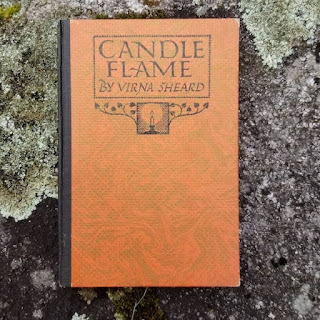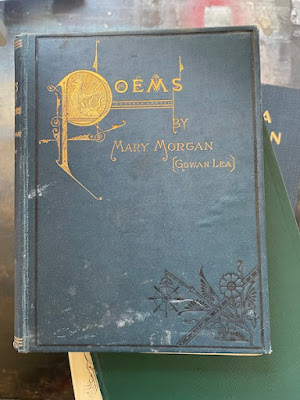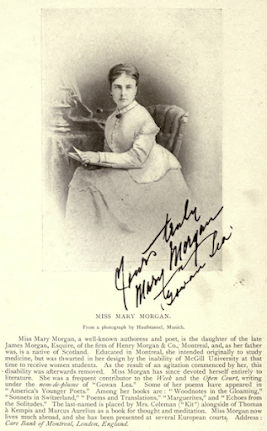A Tale of the MacLeod Trail
Ralph Connor [Charles W. Gordon]
454 pages
We begin on an Inverleith rugby pitch. Scotland is up against Wales in the International. It's a close contest, in part because Allan Cameron, fierce-fighting half-back of the Scottish line, hasn't been playing up to snuff. In the dying minutes, the Scots get a lucky break when the ball comes tumbling Cameron's way. He hesitates, and the promise of victory turns to defeat.
"Oh-h-h-h, Cam-er-on!" is the novel's first sentence. What has happened to Scotland's star player?
The answer is drink.
This is not to suggest that Cameron was under the influence during the game, rather that "he was out of condition; he had let himself run down last week, since the last match, indeed, got out of hand a bit."
The loss isn't the worst of it. Days later, Cameron faces arrest for passing a forged cheque. He doesn't remember doing so, but is unable to deny the charge because... well, you know, drink.
The half-back is saved from arrest by Miss Brody, rugby-loving niece of the Chairman of the Board of Directors of the Bank of Scotland, and Cameron's conscience is later cleared when a dishonourable drinking buddy owns up to the crime. However, the damage has been done; Cameron has decided to give up drink, give up his studies, and make a new life for himself in Canada, envisioning himself "a wealthy rancher, ranging over square miles of his estate upon a 'bucking broncho,' garbed in the picturesque cowboy dress."Instead, he ends up a low-level clerk at a Montreal shipping company.
The job doesn't last long – something to do with losing his temper and throwing his superior against a wall – and so, newly unemployed, Cameron does what we've all done in the same situation by taking in a travelling circus. There he chances upon farmer Tom Haley and his son Timmy who've come to the city to take in the show and purchase provisions for the family farm. Sadly, young freckle-faced Timmy winds up outside one of the drinking tents dotting the circus grounds as inside his father – rather sloshed – begins dipping into the money meant for baking flour and such. Cameron comes to the rescue by dragging Tom out, beating back "circus toughs" in the process.
Grateful and somewhat sobered by the violence, Tom offers our hero a position on his farm, twelve miles outside of town. Cameron accepts. Before long, he's proven himself an expert milker of cows, hoer of beets, player of bagpipes, and temperate role model to young Timmy. Over the course of the growing season, unrefined Mandy, the farmer's daughter, falls for the new hired hand, which scares Cameron into setting out for the West.
Corporal Cameron of the North West Mounted Police is divided fairly evenly into three books, each with very different settings: Inverleith, Montreal and surrounding countryside, and the Canadian West. As a reader I found the first the most entertaining. As a Montrealer, the second held some interest, but only because it depicted a unilingual city that never existed. The last third, in which our hero finds an enemy in a whiskey trader, held the most action, but there's only so much fisticuffs and gunplay I can take. Its depiction of "our Indians" and mythologizing of the NWMP was particularly hard to stomach:
To the whole country the advent of the police proved an incalculable blessing. But to the Indian tribes especially was this the case. The natives soon learned to regard the police officers as their friends. In them they found protection from the unscrupulous traders who had hitherto cheated them without mercy or conscience, as well as from the whiskey runners through whose devilish activities their people had suffered irreparable loss.
The administration of the law by the officers of the police with firm and patient justice put an end also to the frequent and bloody wars that had prevailed previously between the various tribes, till, by these wild and savage people the red coat came to be regarded with mingled awe and confidence, a terror to evil-doers and a protection to those that did well.
Bloomer: "When a fellow gets on the bum and gets into a hole he knows well that there'll be a lot of people tumbling over each other to get him out, hence he deliberately and cheerfully slides in."
Trivia: The novel was adapted to the silent screen in 1921 as Cameron of the Royal Mounted; an interesting title change given that the Royal Canadian Mounted Police had replaced the North-West Mounted Police (note the hyphen) just the previous year.

















